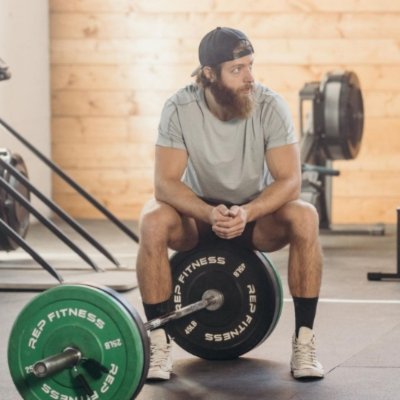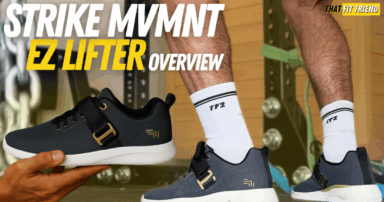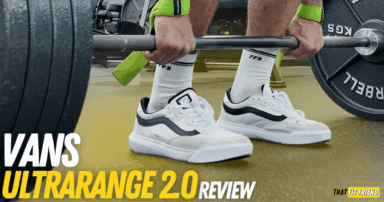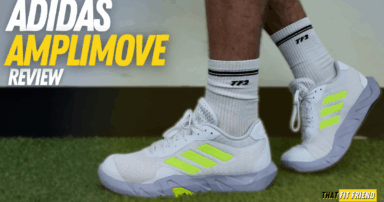One of my favorite things to do when I train in commercial gyms is to check out what shoes everyone is training in. Nothing gives you a better read on what recreational lifters are wearing to the gym than training in big box gyms.
It’s not as weird as it sounds, by the way! I run a shoe review website with a community focus, and I love getting a read on what gen-pop lifters are wearing to the gym—as they’re the biggest training population (compared to strength sports athletes/niche gyms).
My mind always goes to two places,
- Why did this lifter choose this shoe?
- What resources have they explored when it comes to knowing what shoes to wear?
I was training chest and hitting bench in my Stoic Barefoot Trainers, and it got me thinking about comments that I often receive on my videos, “Do my shoes matter for upper body workouts?”
They Can, But Let Me Explain Why…
Upper Body Workouts When They Don’t Matter
To be blunt, for most upper-body workouts, your shoes don’t matter that much.
For example, if you’re going and hitting some upper body machines like the chest press and lat pulldown, then training arms and delts, then you’ll be fine in whatever shoes. Think hypertrophy and strength workouts that are a 6-7/10 intensity.
For example, if your workout looks like the following:
- Dumbbell bench press
- Incline dumbbell
- Chin-up
- Seated row
- Bis/Tris
Then, wear what’s comfortable for you, as your shoes won’t likely hinder performance in these types of upper-body workouts. When in doubt, think about your upper body exercises and how your shoes can promote balance.
In all of these exercises, it’s not the biggest deal to have super stable shoes with heel-to-toe drops that make sense for your anatomy and movement mechanics.
Upper Body Workouts When They Matter
Shoes begin to matter more when your stability and feet are more active in your upper body sessions.
This is when shoes can influence balance/stability and power production, especially in movements like standing barbell overhead press, barbell bench press, and heavy overhead carries.
This also matters more as you start to get stronger and move more weight, as well as when you’re focusing heavily on power. The upper body exercises below are where you’ll find shoes most pertinent for performance.
- Standing Barbell Overhead Press/Push Press: More stable shoes, AKA shoes with denser midsoles, can help with balance and ground feedback. Remember, when pressing, it all starts with the feet and goes up the chain.
- Barbell Bench Press: Denser shoes with grippy outsoles will matter more as they’ll help keep your feet planted and “set” when benching. This is even more important for powerlifters in prep. Train in the shoes you plan to compete in.
- Weighted Overhead Carries: Stabler shoes with lower stack heights will promote a stronger alignment of joints when carrying objects overhead, whereas squishy running shoes can cause balance loss.
At the end of the day, your shoe’s midsole and outsole will matter the most for upper workouts as the weight on the barbell gets heavier and your training gets more specific.
- If you need grip for any type of heavy set, your shoes matter.
- If you want ground feedback for power production, your shoes matter.
- If you want to feel more balanced and stable when pressing overhead, your shoes matter.
Strength Sports Recommendations
- If you’re a powerlifter, you’ll want to find shoes with ample grip for bench pressing. Some lifters enjoy pressing in barefoot shoes, while others wear weightlifting shoes. Shoe choice should reflect optimizing bench press mechanics and grip.
- If you’re a strongman, you’ll want to find a shoe that has good stability, along with upper security and durability, if you want a single model for upper and lower days. Generally, a lower stack height shoe will be best in this context.
- If you’re a CrossFit athlete, I’d suggest finding a great pair of shoes for CrossFit that you can wear for all of your workouts. A good pair of CrossFit shoes will blend stability, versatility, and durability seamlessly.
- If you are a weightlifter and hitting upper accessories, a good stable pair of cross-training shoes will suffice, or your weightlifting shoes if you’re working on block jerks and push presses.









Add a Comment